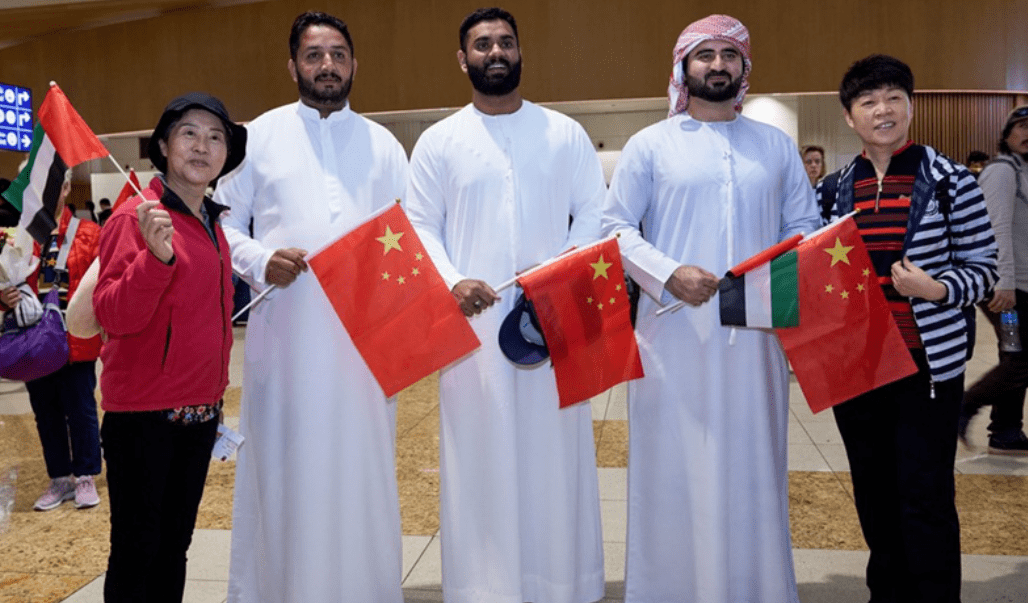As the Middle East approaches the post-US age, China’s popularity among Arab youngsters is rising, indicating growing strategic autonomy in regional affairs.

The Middle East has reportedly entered a post-US era from the top to the bottom, which not only denotes the growing strategic autonomy of regional countries in political and security affairs but also indicates the rapid evolution of the regional order and that a new landscape is gradually taking shape, experts noted as China reportedly outperformed the US in this year’s Arab Youth Survey in terms of popularity among Arab youths.
The Middle Eastern nations’ strategic decision to gaze eastward has been reinforced by China’s development’s enticing possibilities and opportunities as well as the consistency and stability shown in its internal and international policies. Analysts noted that this appeals especially to younger generations.
China came in second place among all friendly countries, while the US came in seventh, according to the Arab Youth Survey done by the Dubai-based public relations agency ASDA’A BCW, according to CNN. According to the research, more than 80% of respondents saw China as an ally of their nation.
The 15th edition of the study this year included face-to-face interviews with over 3,600 people in 53 cities across 18 Arab nations who were between the ages of 18 and 24.
Mao Ning, a spokesperson for the Chinese Foreign Ministry, said that China stands ready to work with Arab countries to continue enhancing youth exchange and cement the public foundation for building a China-Arab community with a shared future in the new era. This was in response to a survey showing an increasing favorability toward China among younger generations in Arab countries.
According to Liu Zhongmin, a professor at Shanghai International Studies University’s Middle East Studies Institute, the trust that Middle Easterners, particularly young people, have in China is largely based on the concrete advantages and opportunities brought about by cooperation with China in the region. Liu made this statement to the Global Times on Tuesday.
More than 3,500 Chinese and Arab government and business officials attended the previous 10th Arab-China Business Conference in Riyadh, the capital of Saudi Arabia. During the event, dozens of transactions totaling billions of dollars were signed.
Liu said that in addition to the two sides’ long-standing collaboration in the energy sector, they are also extending it into new sectors like technology. “In terms of cooperation areas covered, this is all-round cooperation,” Liu added.
According to media sources, the accords include a $5.6 billion joint venture agreement between the Saudi Arabian Investment Ministry and the Chinese automaker Human Horizons as well as a $266 million arrangement between Saudi Arabia and the Android developer Hibobi Technology of Hong Kong for travel and other applications.
The US is allegedly worried about Riyadh and Beijing’s expanding collaboration in security and sensitive high-tech areas, even if both China and Arab nations want to further advance win-win cooperation.
American Secretary of State Antony Blinken visited Saudi Arabia only a few days before to the Arab-China Business Conference. The US “remains the number one partner of choice” for the majority of nations in the Persian Gulf area, he said, adding that Washington was not asking anybody to pick between the US and China.
While US officials often avoid addressing China explicitly, according to Liu, they are essentially attempting to put China at odds with Arab nations. “Saudi Arabia’s response implies a rejection of Blinken’s statement, which may also reflect the attitude of most countries in the region,” he said.
The US is striving to maintain its long-term presence in the Middle East while strategically shifting away from the Middle East and into major power rivalry with Russia and China. This is the motivation for its zero-sum strategy. “The US probably did not anticipate such a huge change in the Middle East this year, and it also has an unexpected and bewildered feeling about its own decline and the rise of other countries,” the analyst pointed out.
The first official meeting between the two nations’ senior diplomats in more than seven years took place on April 6 in Beijing, when Saudi Arabia and Iran declared the reopening of diplomatic relations with immediate effect.
Analysts pointed out that China’s effective mediation between the two nations not only demonstrates that the Chinese diplomatic ethos is accepted by other nations, but also has major amplifying and spillover effects.
According to reports from the Times of Israel, which cited an unnamed source, preliminary talks have been undertaken in recent days between the offices of the two leaders to arrange for Israeli Prime Minister Benjamin Netanyahu to visit China next month.
Reports indicate that Netanyahu would strive to improve ties with Saudi Arabia with the assistance of China, despite neither nation having publicly acknowledged the news as of yet. Washington, which has often urged normalization of ties between the two nations, could be incensed by this action.
According to the article, top insiders described Netanyahu’s impending trip to China as “breaking the frame” since Israel is one of the US’s most crucial friends in the Middle East and the US has long maintained a significant role in the area.
It is possible to see Israel’s answer as a continuation of Saudi Arabia and Iran’s statement in Beijing of the restoration of diplomatic relations. This demonstrates even more how difficult it is for the US to maintain its previous level of control in the Middle East. According to Tang Zhichao, a Middle East expert at the Chinese Academy of Social Sciences, an increasing number of US friends and partners in the area are beginning to make judgments based on their own national interests.
With the expectation of a marked reduction in its readiness to participate in diplomatic efforts, interfere in crises, and restructure the Middle Eastern system, the US’s regional influence will continue to wane in the near future. Analysts stated that nations in the area would continue to investigate modernization options that are compatible with their unique conditions while balancing globalization and localization.






